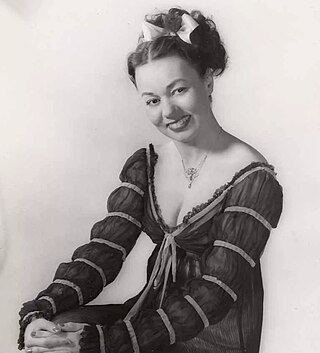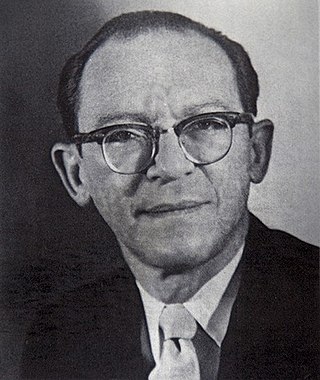
Jean-Jacques Dessalines was the first Haitian Emperor, leader of the Haitian Revolution, and the first ruler of an independent Haiti under the 1805 constitution. Initially regarded as governor-general, Dessalines was later named Emperor of Haiti as Jacques I (1804–1806) by generals of the Haitian Revolutionary army and ruled in that capacity until being assassinated in 1806. He spearheaded the resistance against French rule of Saint-Domingue, and eventually became the architect of the 1804 massacre of the remaining French residents of newly independent Haiti, including some supporters of the revolution. Alongside Toussaint Louverture, he has been referred to as one of the fathers of the nation of Haiti. Dessalines was directly responsible for the country, and, under his rule, Haiti became the first country in the Americas to permanently abolish slavery.

William Grant Still Jr. was an American composer of nearly two hundred works, including five symphonies, four ballets, nine operas, over thirty choral works, art songs, chamber music, and solo works. Born in Mississippi and raised in Little Rock, Arkansas, Still attended Wilberforce University and Oberlin Conservatory of Music as a student of George Whitefield Chadwick and then Edgard Varèse. Because of his close association and collaboration with prominent African-American literary and cultural figures, Still is considered to be part of the Harlem Renaissance.

The New York City Opera (NYCO) is an American opera company located in Manhattan in New York City. The company has been active from 1943 through its 2013 bankruptcy, and again since 2016 when it was revived.
Lawrence Winters(néLawrence Lafayette Whisonant; 15 November 1915 King's Creek, South Carolina – 24 September 1965 Hamburg, Germany), bass-baritone, was an American opera singer who had an active international career from the mid-1940s through the mid-1960s. He was part of the first generation of black opera singers to achieve wide success and is viewed as part of an instrumental group of performers who helped break down the barriers of racial prejudice in the opera world. He began his opera career at the New York City Opera in 1946 during a time when the NYCO was one of the few American opera companies hiring black artists. He sang a varied repertoire there through 1955, after which his career was largely based in Europe until his death at the age of fifty.

Robert Keith McFerrin Sr. was an American operatic baritone, notable for being the first African-American man to sing at the Metropolitan Opera in New York City. His voice was described by critic Albert Goldberg in the Los Angeles Times as "a baritone of beautiful quality, even in all registers, and with a top that partakes of something of a tenor's ringing brilliance."

Robert Weede was an American operatic baritone.

A Bayou Legend is an American opera composed by William Grant Still, with a libretto by his wife and frequent collaborator, Verna Arvey.
Verna Arvey was an American librettist, pianist and writer who is best known for her musical collaborations with her husband William Grant Still, a musician and composer.
Laszlo Halasz was an American opera director, conductor, and pianist of Hungarian birth. He studied with Béla Bartók, Zoltan Kodály, Ernö Dohnányi and Leó Weiner at the Budapest Music Academy.

Helena Bliss was an American actress and singer. A talented soprano, she actively performed in musicals, operettas, and operas in the United States, both on stage and on television and radio, from the 1930s through the 1950s. She is best known for her portrayal of Nina Hagerup in the original Broadway production of Robert Wright and George Forrest's Song of Norway. She also appeared successfully in a few productions on London's West End.
William Brown was an American operatic tenor, a founding member of the Center for Black Music Repertory Ensemble and a Distinguished Professor of Voice at the University of North Florida.

The 1804 Haiti massacre, also referred to as the Haitian genocide, was carried out by Afro-Haitian soldiers, mostly former slaves, under orders from Jean-Jacques Dessalines against much of the remaining European population in Haiti, which mainly included French people. The Haitian Revolution defeated the French army in November 1803 and the Haitian Declaration of Independence happened on 1 January 1804. From February 1804 until 22 April 1804, between 3,000 and 7,000 people were killed.

Miss Sally's Party is a 1940 ballet composition in eight-movements by American composer William Grant Still. A related libretto was written by Verna Arvey, wife of composer Still. The ballet was first performed on May 2, 1941, and is about nineteen minutes long.

Benjamin Steinberg was an American concert violinist, conductor, and civil rights activist, who is best remembered as the founding artistic director of the Symphony of the New World, the first racially integrated orchestra in the United States, its premiere concert was at New York City's Carnegie Hall on May 6, 1965.

William Edgar Easton was an American playwright, journalist, and political activist. He wrote two plays about the Haitian Revolution and its aftermath: Dessalines (1893), a historical drama about Jean-Jacques Dessalines; and Christophe (1911), a drama about Henri Christophe, King of Haiti following the Revolution.

Katherine Garrison Chapin, sometimes known by her married name Katherine Biddle, was an American poet, librettist, and playwright. She is best known for two collaborations with composer William Grant Still: And They Lynched Him on a Tree (1940) and Plain-Chant for America (1941).

Lenox Avenue is a series of ten orchestral episodes and a finale composed in 1937 by American composer William Grant Still. The composition is for orchestra, chorus and announcer; the narration was written by Verna Arvey, wife of composer Still. The first performance was broadcast nationally on radio on May 23, 1937, conducted by Howard Barlow. A related ballet version was composed in 1938, and is about twenty-one minutes long.

Three Visions is a 1935 suite in three parts for solo piano, and later, the second part, Summerland, for chamber orchestra, by American composer William Grant Still. According to Judith Anne Still, the composer's daughter, "The three segments of the suite, Dark Horsemen, Summerland, and Radiant Pinnacle, tell the story of the human soul after death: the body expires, and the soul goes on to an apocalyptic judgment. If it is seen that the past life has been a good one, the soul may enter “heaven,” or “Summerland”. After a period of time, the soul may reincarnate to learn additional earthly lessons on the human plane. Some souls reincarnate many times in a constant circular progress toward Godly perfection." Three Visions was composed by Still for his wife, Verna Arvey, who first played the composition in Los Angeles in 1936. The suite is about eleven minutes long.

Kaintuck' (Kentucky) is a 1935 symphonic poem for piano and orchestra by American composer William Grant Still.

Highway 1, USA is an American opera in one act with music by William Grant Still and libretto by Verna Arvey. Originally composed during the 1940s with the title A Southern Interlude, the opera received its premiere under its revised and definitive title in 1963.










